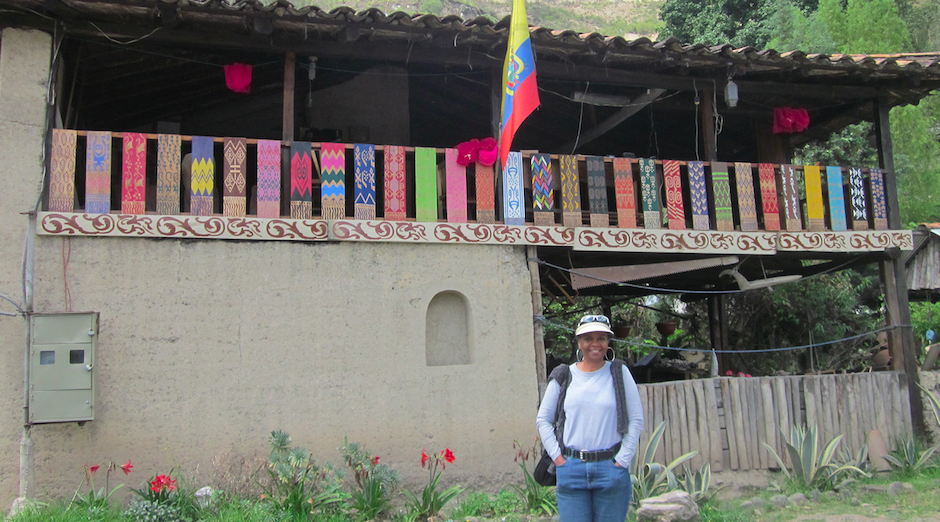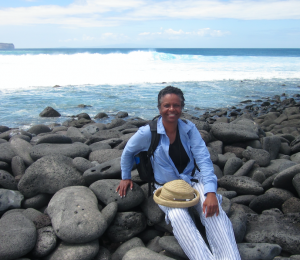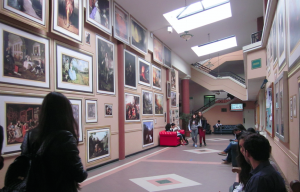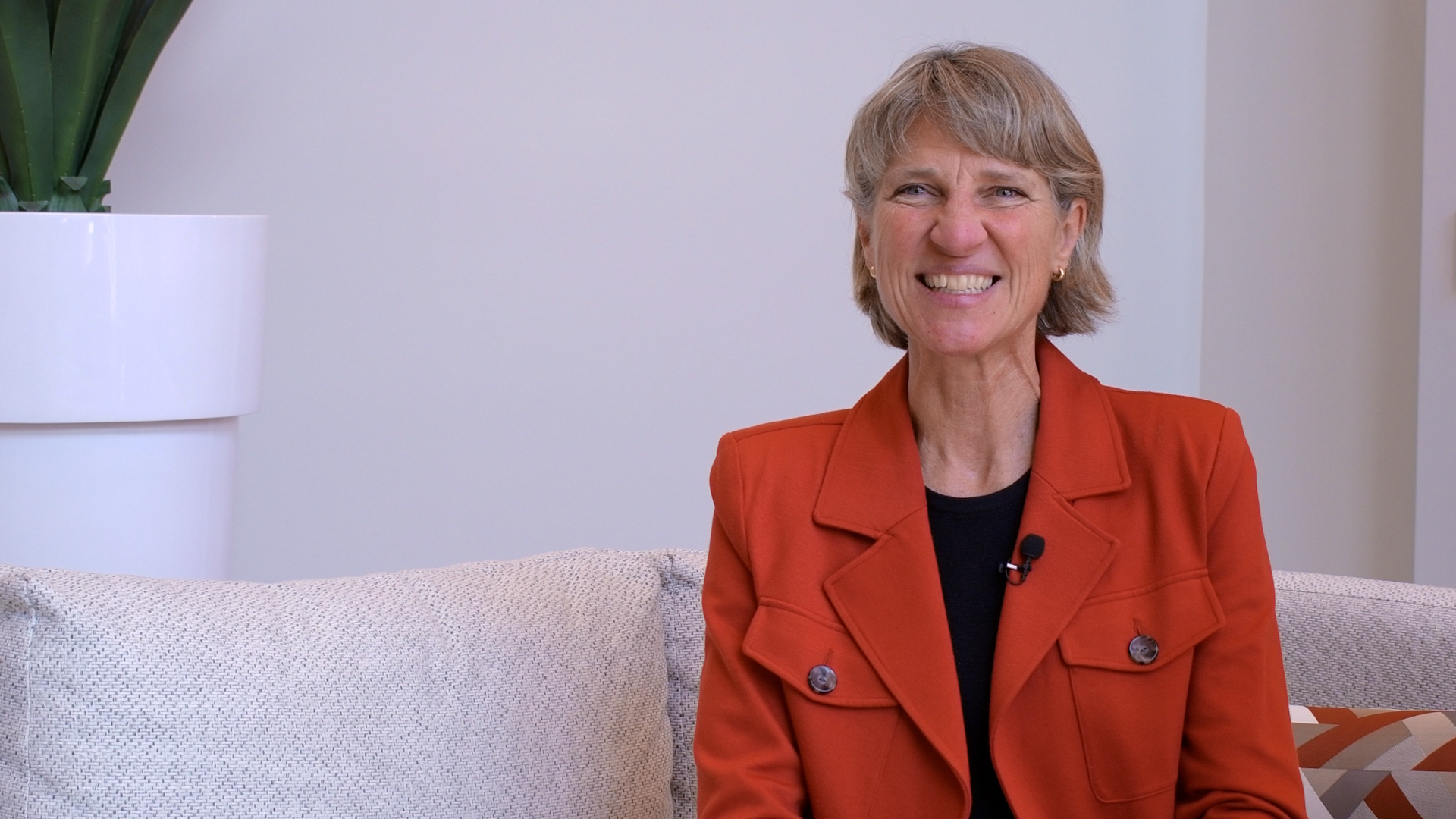College of Education Professor Currently Teaching In Ecuador as Fulbright Scholar

Dr. Patricia L. Marshall is a professor in the College of Education, Department of Teacher Education and Learning Sciences, who is teaching in Ecuador for the 2015-2016 school year as part of the Fulbright Scholars program.
The Fulbright Award is a program of the United States Department of State Bureau of Educational and Cultural Affairs. The program aims to “increase mutual understanding between the people of the United States and the people of other countries, and it is the flagship international educational exchange program sponsored by the U.S. government.
We asked Dr. Marshall a few questions about the Fulbright Award and her experiences in Ecuador thus far.
Tell us more about the Fulbright Scholar Award you received and why you’re currently teaching in Ecuador.
Dr. Patricia L. Marshall (PM): I applied for and am the recipient of a Fulbright Scholar Core Award combining teaching and research. Briefly, in the proposal I submitted for the 2015-2016 award competitions, I detailed my interest in teaching a two-semester course focusing on analysis and critique of cultural diversity in schools in the U.S. and in Ecuador. Features of the course were to include exploration of cultural diversity in pre-collegiate schools with a particular focus on ethnoracial and economic class diversity; critique of the impacts of these two factors on the teaching-learning process including schooling outcomes/opportunities to learn for contemporary children and youth from minoritized populations; and examination of how enactment of critical pedagogies can help lessen some of the more blatant schooling inequities in both societies.
I am honored to be a Fulbright Scholar. I arrived in Ecuador in August 2015, and my stay here will be for nine months. Thus far, I can say unequivocally that it has been a great journey. I feel incredibly fortunate to have been granted this opportunity to live for an extended period outside the U.S. It strikes me as the height of theory/practice congruence to have to navigate every aspect of my personal and professional life by drawing on many of the ideas, concepts, and broad principles that I have studied and taught about for many years as a member of the faculty in the College of Education at NC State University.
Correspondingly, my research interests involve: 1) exploring how I, a multicultural teacher education scholar, enact features of cultural relevance in this non-U.S. teacher education context; and 2) studying what happens in the learning community — to the students and to me — when the dominant language of interaction in a course focused on impacts of race and economic class diversity in schools is changed from English to Spanish.

What are you hoping to learn during your time in Ecuador?
PM: For one, I hope to explore critically how I enact (in my teaching in this non-U.S. context), some of the ideas, concepts, and principles I’ve researched among teachers in the U.S., and taught about for years in both undergraduate and graduate courses.
I’d have to say, on a most fundamental level, I’m hoping to learn about (and gain greater insights into) my own cross-cultural competence. This includes, but definitely has not been limited to, my acute awareness of and critical reflections on how I am responding and adapting to others’ responses to my “cultural differences” —– as well as how I am responding and adapting to my perceptions of cultural difference in “others”. Related to this is my hope to learn more about what it means to embrace an identity as English/Spanish bi-literate woman of color. For more than four years now, I have been engaged in self-study of my own journey toward bi-literacy. As my focus is on English/Spanish bi-literacy, just prior to my visit to Ecuador in 2014, I’ve been hoping to acquire a more nuanced understanding of/appreciation for the complexity of Latina/o culture, with a specific focus on exploring the notion of mestizaje. That is certainly happening for me.
Finally, I’d certainly love to learn something about the actual goings on in Ecuadorian schools — particularly those that serve economically poor and minoritized populations — through first hand observation.
What has been the greatest challenge you’ve faced thus far?
PM: Actually, there have been a number of challenges, most of which I’ve been able to find a way to adjust to quite readily. Still and all, I’d probably have to say my greatest challenge thus far has been my oral language skills. They are evolving, and I knew they would, but sometimes I am not as patient with myself as I should be — that is, in light of the fact that I know well (and quite a bit about) the complexity of acquiring fluency and fluidity in another language.
Another challenge has been not being fully integrated into the faculty as quickly as I’d anticipated and hoped to be. In this regard, it took quite some time to be assigned professional workspace on the USFQ campus. In the interim, I worked in the library. This was a rather interesting test for me because I found the library was always crowded with students studying (a very good thing to see!), but on the other hand there was often no place I could claim for myself to do my work. Therefore, I found myself retreating to my apartment to work. This, in turn, was problematic because it caused me to be cloistered and isolated, instead of involved and actively engaged with my new colleagues.
Another challenge has been having to change my project plan. Recognizing that I would be spending the better part of a year in a foreign country, I knew there was a distinct possibility I’d need to change some part of my project. The fact is, in any research activity the need will usually arise for changes to be made in the original plan. Sometimes those changes are superficial, but other times they can be quite substantial. Well, I’ve been challenged to change my teaching/research plan. The plan for a two-semester course fell through early last semester. Instead, my teaching and research activity will occur this semester in a graduate course I’ve been asked to teach titled “Cultura y Globalismo.” I am excited about this and feel confidant things will still work out. I guess overall, I’m finding that by simply going with the flow (and learning all I can along the way) I am better able to fully appreciate the uniqueness of this experience.
What has been the greatest success/accomplishment in your time thus far?
PM: Like my greatest challenge, my greatest success/accomplishment thus far has to do with language. I have grown tremendously in my ability to read and understand spoken Spanish, and I’ve advanced quite a bit in my speaking abilities. I am now reading a lot of professional literature (all written in Spanish). Everyday and every evening I follow the news on both radio and television — en español. At this point there is very little “translating” going on in my understanding; still, I know I have more to learn.

In terms of interactions with colleagues, I gave a campus-wide presentation last semester on micro-aggressions that has been quite well received. A number of folks (many of whom I didn’t even realize were in the audience) have approached me on campus to say they attended the presentation and learned a lot. My students from last semester are highly complimentary (to my USFQ colleagues) about their experience in my course.
Tell us more about your blog, Sí Puedo.
PM: In January 2012 I made a personal growth resolution that soon transformed into a professional journey. As part of that journey, in summer 2013 I participated in a Study Abroad experience (as a student) with the NC State Department of Foreign Languages and Literatures. I traveled to the country of Costa Rica, was a student at the Universidad de Costa Rica, and lived with a local family. At the suggestion of the faculty coordinator for that experience, I decided to begin keeping a blog. That blog is titled, Sí Puedo.
My purpose in keeping the blog was to use it as a venue through which I could share with my loved ones — family and closest friends — my various adventures in Costa Rica. After my Costa Rica experience, I stopped writing in my blog but then started up again in May 2014 when I first visited Ecuador. Not knowing anyone in Ecuador, I elected to come here as an adventure and as a site for the second segment of my personal growth/professional journey. During that time I opened my blog again and uploaded entries about my various experiences. Then in January 2015, I learned I had been selected by the Fulbright Commission of Ecuador to return to this beautiful country. In short, I first chose Ecuador, and then Ecuador chose me! Upon my return to Ecuador as a Fulbright Scholar, I decided to once again open my blog.
I’ve written about a number of topics on my blog including needing to re-pack my luggage at the airport; challenges of acquiring an Ecuadorian bank account; speaking Spanish to my students; being hounded by dogs in my neighborhood; USFQ meeting about the threat of eruption of Volcán Cotopaxi; Thanksgiving at the Fulbright Commission, and travels to the Ecuadorian rainforest and the Charles Darwin Research Center in the Galápagos Islands. I have two blogs. One, Sí Puedo, is written in English, whereas the other, Reflexiones Sobre Mi Viaje, is written in Spanish.
To learn more about Dr. Marshall’s year in Ecuador, please visit her blog.
- Categories:


